 |
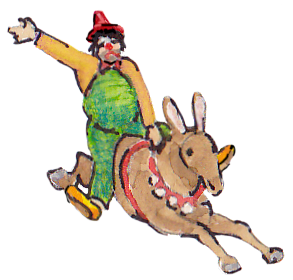 |
Posters and Preparations
The circus collects the outsiders like a flame tempts moths.
― Laura Lam |
|
|
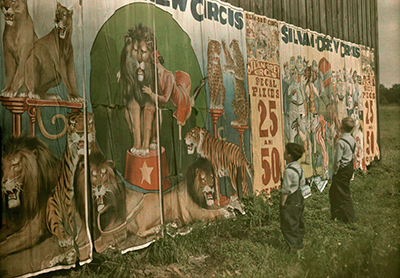 Towns were "sheeted up" with a multitude of huge posters. Towns were "sheeted up" with a multitude of huge posters.
In the 1800s there were no billboards. The giant posters went on barns (some farmers got free tickets for allowing this), commercial buildings, and fences. If necessary, the circus got local carpenters to put up wooden walls. Smaller posters went up in shop windows. Towns were sheeted up weeks, or even months, in advance.
The posters were lithographs printed on stone or wooden blocks. Before circuses traveled by rail, the dates on the posters were approximates because travel was so full of obstacles. Some small circuses put their name on the top of stock posters.
 The language was, well, Trump-like: "Unequalled" "Mighty" "Colossal" "Nickel Plated" "Paris Pavilions." Seals were "ferocious sea lions" or "sea leopards" or "sea elephants." The language was, well, Trump-like: "Unequalled" "Mighty" "Colossal" "Nickel Plated" "Paris Pavilions." Seals were "ferocious sea lions" or "sea leopards" or "sea elephants."
One small circus advertised that they were "Not the Best but as Good as some Who Call Themselves Great."
In 1911 Ringling posted more than 900,000 posters.
|
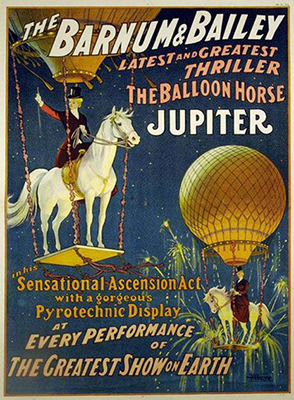 |
 |
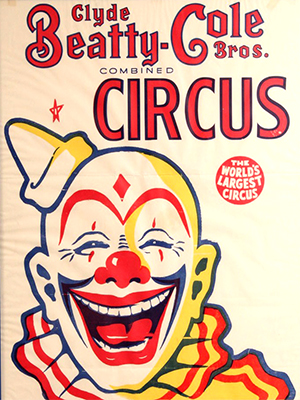 |
 |
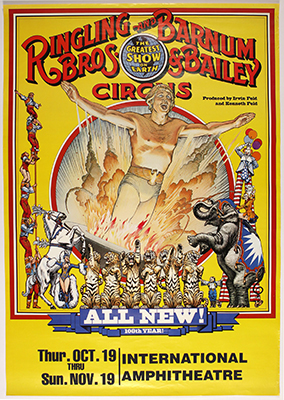
|
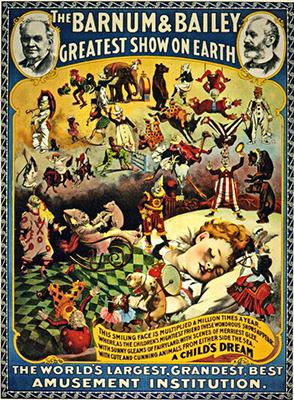 |
 |
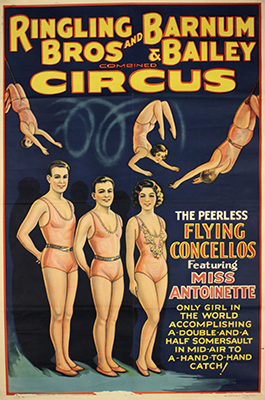 |
 |
 |
|
 |
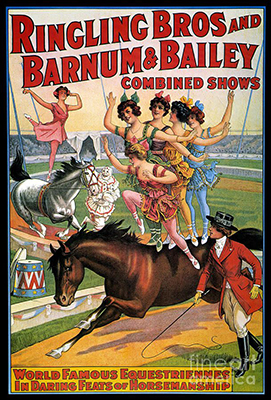 |

|
 |
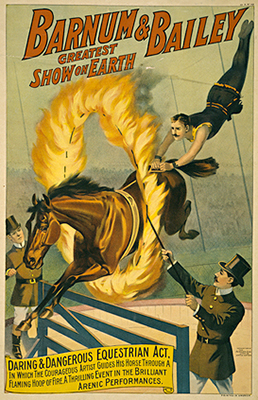 |
| |
 |
 |
 |
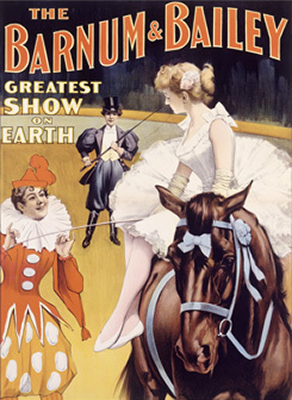 |
 |
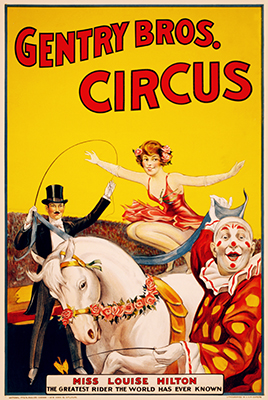 |
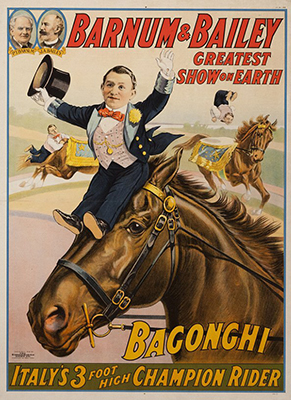 |
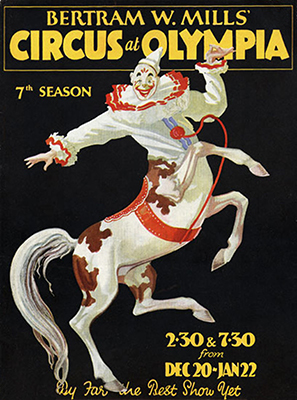 |
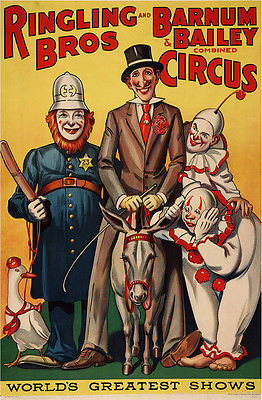 |
 |
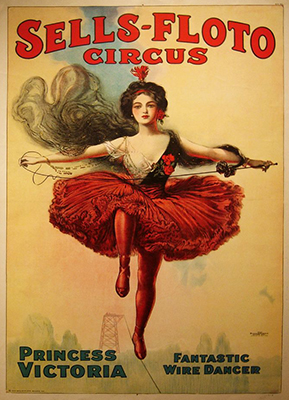 |
 |
 |
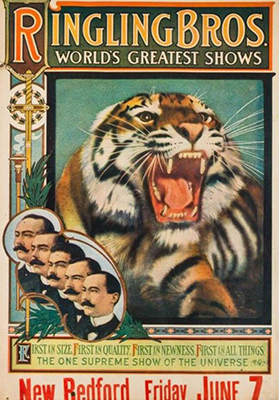 |
 |
 |
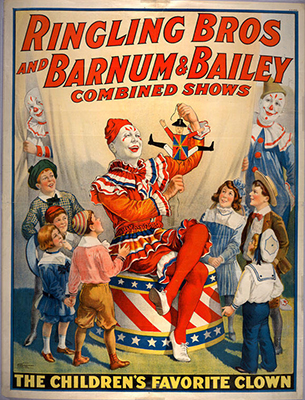 |
 |
 |
 |
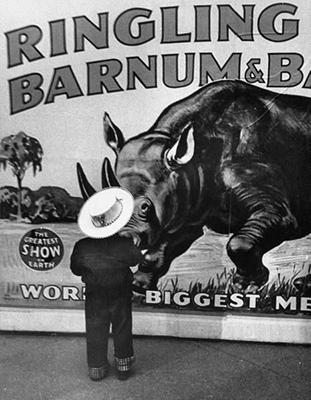 A lot had to happen before the circus arrived. A lot had to happen before the circus arrived.
The advance agent contracted to:
- Rent grounds.
- Secure groceries and feed for the animals. Big cats in large circuses ate 1,000 pounds of meat a day.
- Secure licenses.
- Reserve lodging for principals if they were too important for the lot.
- Reserve stabling for the most valuable horses.
- Procure poles for tents. (The huge center poles traveled with the circus.)
- Hire local help.

Locals were excited about job opportunities, including being a roustabout to help raise the tents. Large circuses hired help for the cook tent. The pay for local labor was often free show tickets.
The press agent bought ads, planted stories that dominated newspapers, and got handbills distributed. When radio came, circuses promoted themselves on the airwaves.
But the press agent didn't just meet with journalists. There was PR to be done with ministers, educators, and town officials. Tickets were handed out liberally to grease the wheels.
Some towns saw a circus once a year, others had several come through. Scheduling a tour was an art, as was dealing with the finances.
|
|

|
